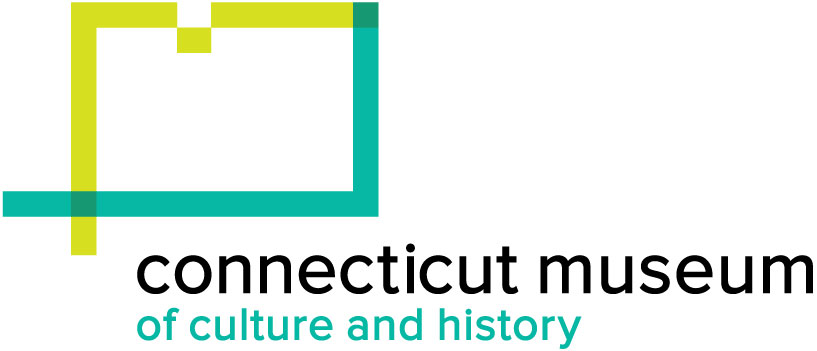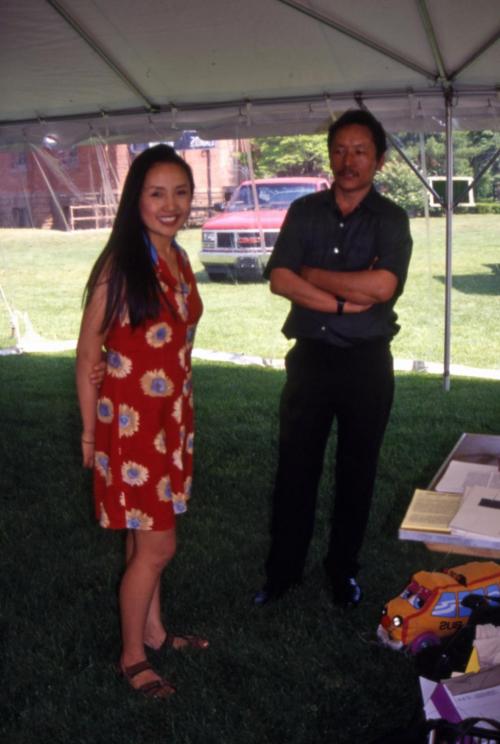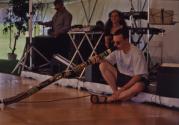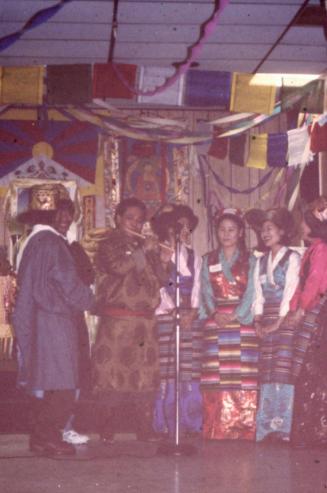Dadon Dawa Dolma Concert
SubjectPortrait of
Dadon Dawa Dolma
(Tibetan, born 1968)
Date1996 June
Mediumphotography; color slide on plastic in cardboard mount
ClassificationsGraphics
Credit LineConnecticut Cultural Heritage Arts Program collections
CopyrightIn Copyright
Object number2015.196.229.1-.5
Description2015.196.229.1a-b: Slide and photograph showing the Tibetan singer Dadon Dawa Dolma, with her then-husband, Phumba at her concert at Wesleyan University
2015.196.229.2a-b: Slide and photograph showing Tibetan singer Dadon Dawa Dolma with her band at their concert at Wesleyan University
2015.196.229.3a-b: Slide and photograph showing Tibetan singer Dadon Dawa Dolma with her band at their concert at Wesleyan University
2015.196.229.4a-b: Slide and photograph showing Tibetan singer Dadon Dawa Dolma with her band at their concert at Wesleyan University
2015.196.229.5a-b: Slide and photograph showing members of Dadon's band, one playing didgeridoo
NotesBiographical Note: Dadon Dawa Dolma has been a leading singer and composer of popular music in Tibet and later in the U.S. Sales of her six solo albums, sung in Tibetan, have reached millions in Tibet, China, India, Taiwan, Bhutan, and Japan as well as Europe since she began recording in 1989. Her music is modern and powerful, combining traditional and contemporary Tibetan melodies and instruments. The words of Dadon's songs are written by her and other Tibetans such as a monk working for the Dalai Lama in Dharmasala, India. 2015.196.229.2a-b: Slide and photograph showing Tibetan singer Dadon Dawa Dolma with her band at their concert at Wesleyan University
2015.196.229.3a-b: Slide and photograph showing Tibetan singer Dadon Dawa Dolma with her band at their concert at Wesleyan University
2015.196.229.4a-b: Slide and photograph showing Tibetan singer Dadon Dawa Dolma with her band at their concert at Wesleyan University
2015.196.229.5a-b: Slide and photograph showing members of Dadon's band, one playing didgeridoo
Like most Tibetans in exile, Dadon has been fervently committed to informing the world about Tibet's loss of freedom and culture under Chinese domination. Courageously using her popularity to express strong feelings about the liberation of Tibet became too dangerous, so in 1992, Dadon and her then-husband Phumba walked over the Himalayas to refuge in Nepal and later India. They immigrated to Connecticut in 1993, where their second son Tenzin Tashi was born, settling in Middletown.
Dadon learned traditional Tibetan songs from her mother, a renowned singer, later studying violin and piano at the Beijing University of Nationalities. She played in the Tibetan National Orchestra, then studied voice at the Chinese Musical College. Often in the West, Tibetan culture is thought to be homogeneous. In fact, Dadon's song style features elements from many kinds of Tibetan music and dance forms including secular traditional and modern, religious, and classical. Like musician Thupten Tenzin, she knows and loves all these styles, believing that Tibetan culture will survive and strengthen through both preservation and innovation. Also an actress in theatre and films, Dadon has performed at community events and at several large benefits for Tibet, including at Carnegie Hall. She formed a performing group with musicians based at Wesleyan University in Middletown, Connecticut in the 1990s, performing widely with this group and solo around the East Coast and for several large Tibet benefit concerts in New York City including the Tibetan Freedom Concert in 1997 along with Michael Stipe and other well-known stars. Dadon and her group performed at the Tibetan Festival at ICR during the Auspicious Signs exhibit in 1996. In addition to music, Dadon and her sons were part of a theatre project at Oddfellows Playhouse in Middletown in 1998.
"...I'm going to sing more for freedom, because in Tibet after the Chinese came they've broken lots of monasteries and they want Tibetan culture to disappear. They try to bring Tibetan kids to China to teach in the Chinese language and teach a very Chinese way. We worry about later when the Tibetan language will be gone. Tibetan young people and others like to listen to my music, so I want to use this road to tell them how important our culture is, how important independence is...they have been learning the wrong way! They don't even know the truth, their story, our story! If I can sing songs about our true culture and what's really happened for us, they will know."
Additional materials exist in the CCHAP archive for this artist.
Cataloging Note: This project was made possible in part by the Institute of Museum and Library Services MA-245929-OMS-20.
Status
Not on viewDadon Dawa Dolma
1995 June 23


















